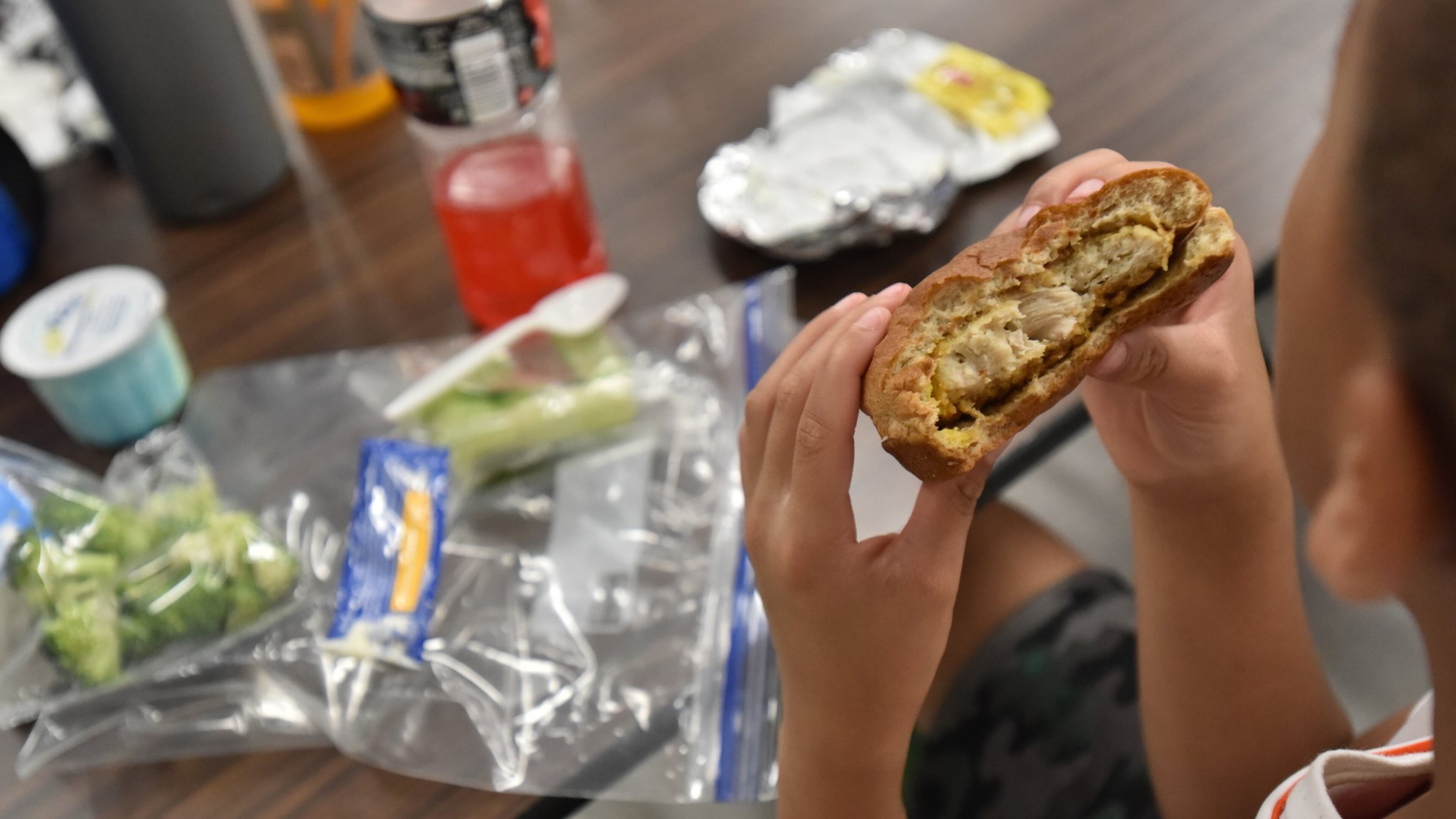Summer meals programs allow youths to eat healthy when school is out

Clara Bennett, a retired school nurse, used to worry about how her two great-grandchildren would make it through summer without the meals provided by their schools.
For the last several years, though, Bennett has received food through a summer meals program run by several groups, including the Islamic Speakers Bureau of Atlanta.
The Islamic Speakers Bureau works with other organizations, including the Islamic Community Center of Atlanta, through the Fayette County Summer Lunch Program to provide food to children who are on free and reduced price lunch programs during the school year.
Lunches are prepared and delivered to families each week. There are numerous programs like this one across metro Atlanta.
“It works for us,” said Bennett, 88. Without it, “sometimes we just would not have a middle of the day meal. It makes a more nutritious meal, and we certainly enjoy every bite of it.”
Amani Elghoroury, volunteer coordinator for the Islamic Speakers Bureau, said in 2005, they served 66 children. This year, they expect to serve 300 children.
For the past two years, they have been aided by Episcopal Church of the Nativity and B’nai Israel Synagogue.
“A lot of the families are busy working, not making enough or doing the fast-food thing,” she said. The meals they deliver “help with a child’s growth and development and, hopefully, we catch them early enough to do so.”
Related: Why the world can't stop wasting food
Related: Documentary tackles soul food and health
Last summer, the statewide summer meals programs served 9.4 million meals with more than 2,900 meal sites, according to the Atlanta Community Food Bank. They target youths 18 years and younger and provide free meals. In many cases, children who are not involved in a specific program may drop in for a meal, but they must eat the meal on-site.
For some students, meals and snacks they receive in school may be the only healthy food they receive that day.
As first lady, Michelle Obama was a champion of better eating options for the nation’s children and pushed for healthier meals in school cafeterias.
Summer is a time for fun. But for one out of five children, it can be a time of concern if they don’t know where their meals will come from when school is out.
More than 60 percent of children in the state’s public schools, K-12, are eligible for the free and reduced price lunch programs offered during the school year.
However, only 17 percent of those same children have access to lunch during the summer break.
Programs such as the federally funded Summer Food Service Program, which is administered by Bright From the Start: Georgia Department of Early Care and Learning, and the Seamless Summer Option, which is run by the Georgia Department of Education's Nutrition Department, are there to help by providing meals and snacks during summer.
The Atlanta Community Food Bank, for instance, works on the outreach and marketing campaigns for the summer meals programs. It connects with partners who run food pantries as well as with churches and community centers to become sites for summer meals programs.
One of its partners is the Marietta City Schools, which provides meals for the summer meals site at Campbell Middle School in Smyrna.
Related: Share table at Atlanta school helps reduce food waste
Related: Task force addresses food deserts
“It’s basic,” said Michele Chivore, director of the Atlanta Community Food Bank’s child nutrition program. “Every child needs to be eating well. Kids who come from households that don’t have food security issues eat three meals a day and maybe two snacks. Some kids are already at a disadvantage educationally, so if we can eliminate one of those challenges that exist for them, specifically nutrition, hopefully when they get ready to go back to school, they will be as close to their peers as possible.”
Last year, the Atlanta Community Food Bank and its community partners distributed 44,000 meals at 33 sites. This year, they hope to distribute 60,000 meals at 55 sites through the end of July.
Research has shown that children who eat several balanced meals are more likely to have energy and better concentration. They also are healthier and less likely to suffer from obesity.
One recent Thursday at Campbell, dozens of students — after a morning of intense activity — sat down to a meal that included fruit, a sandwich and milk.
In Decatur, William Smith and Christiana Ugwu recently spent part of the morning putting out lunches for children at the Exchange Park Recreation Center in Decatur. The meals, in square plastic containers, included a juice box, a small salad, with an apple or a pear, a small bag of carrots, a sandwich and a carton of milk.
“It’s a win-win for these students and their families,” said Marvin Billups, deputy director of the DeKalb County Department of Recreation, Parks and Cultural Affairs. “We won’t have to worry about whether they are getting a healthy meal. We don’t have to worry about kids coming in hungry.”
MORE DETAILS
Here’s how to find a meal site near you:
Summer Food Service Program: fns.usda.gov/sfsp/summer-food-service-program

